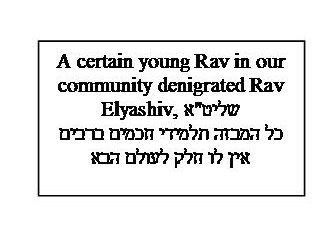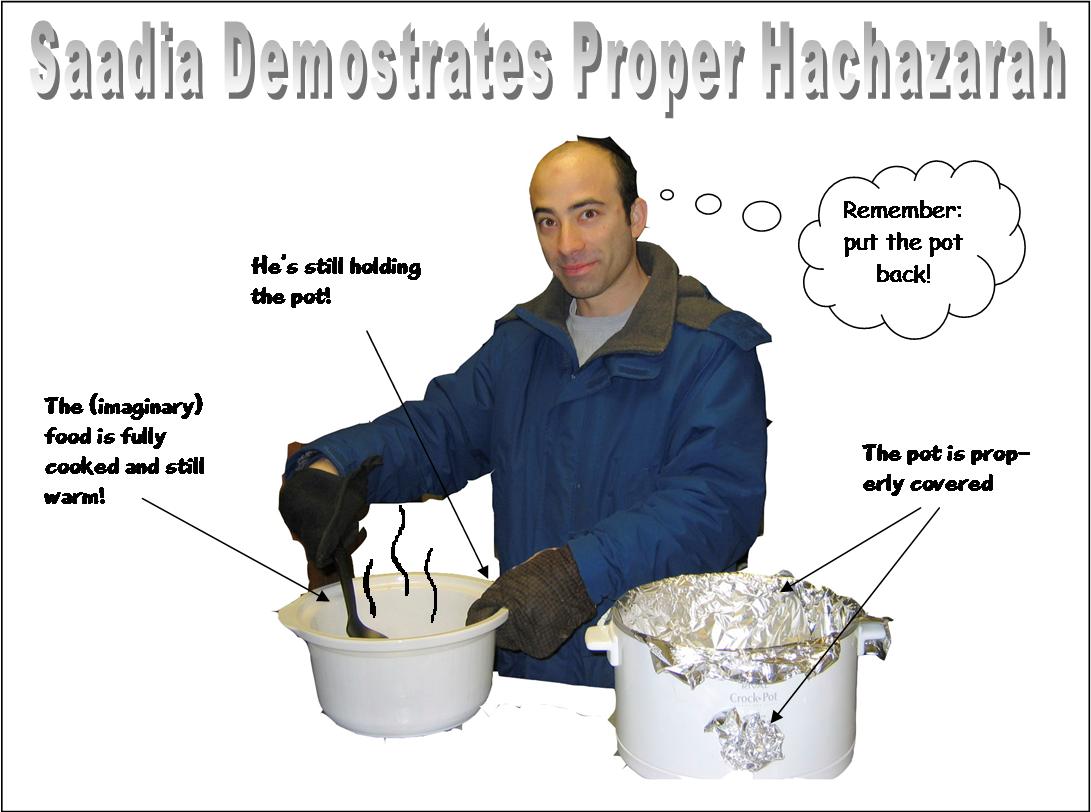I love Trader Joes. I love the store, and the displays, and I’ve never had an unpleasant exchange with a Trader Joes employee. Today was a good example.
At the checkout, I asked the checkout guy about the cocoa content of one of the chocolate bars they put right next to the register, explaining that on my crazy diet (Sugar Busters!), I can only eat chocolate with a cocoa content of 60% or higher.
“You know,” he said, “Chocolate is really good for you. It helps calm your moods, and I hear that it can even be good for circulation. Of course, you’re only supposed to eat an ounce or two every few days.”
“Sure,” I said. “Anything is good for you, taken in moderation.”
At this point, the checkout guy at the register next to us apparently couldn’t help himself, as he chimed in, “Even moderation is good only in moderation.” True enough.
Taking his comment to its logical conclusion, if moderation is good only in moderation, then extremism must also have its place. Which seems somewhat contradictory: if I’m supposed to be a moderate, then how can I advocate infrequent extremism? Should I be an extreme moderate? A moderate extremist? Is that even possible?
I have been pondering this tension between moderation and extremism for the better part of a week now, as this issue has affected me in quite a personal way.
Several weeks ago, I gave a Drashah in shul on Shabbos morning sharply criticizing the recent decision of the United Torah Judaism political party in Israel to join Prime Minister Ariel Sharon’s unity government. While I did not specifically criticize any particular individual, my comments did leave the impression that I was personally critical of Rabbi Yosef Shalom Elyashiv, and his decision to allow the UTJ to join the coalition in the first place. As many of you already know, my comments in shul on that snowy January morning sparked a storm of controversy. One shul member approached me during the week, to discuss not so much the content of my talk, but its tone. “After all is said and done,” he told me, “no matter how much you disagree with his decision, he’s still Rav Elyashiv. He’s still a gadol batorah (a great Torah sage).” It bothered him greatly that I would speak about someone of that stature in the way that I did.
Looking back, I agreed with him, so the next week I spoke about the need for reverence and respect for Torah scholars, and how, while I still questioned Rav Elyashiv’s decision, I would have questioned that decision with a sense of reverence and respect for his position and the Torah that he represents. Yet, during the week between the two speeches, a sign appeared in the Kollel on Lincoln and Greenfield that, to me, seems to represent a growing and troubling trend in the Jewish world today.
The sign – which I never personally saw, read as follows:

(Translation of the bottom section: “Anyone who denigrates Torah scholars in public has no portion in the world to come.”)
First and foremost, from a publicity standpoint, the “sign-man” did me a huge favor. Truth be told, it was pretty cold that first Shabbos, as snow fell outside throughout the morning. While we had a nice crowd for three inches of snow, our shul was by no means full. Sure, people would talk about my speech. But posting a sign condemning my Drashah only helped to ensure that every member of the community would want to know what I said. The very best publicity for anything – from a speech to a book to a movie, is a public condemnation. Just ask Mel Gibson.
Back to the sign: Hung anonymously, this sign in the Kollel bothered me for a number of personal and not-so-personal reasons. Truth be told, it’s never fun to be “called out” in public. But, when you speak publicly and take positions on sensitive issues, you have to be ready for criticism. Controversial statements often invite dissent, so criticism becomes part of the territory, as it should be. On the face of it, I understand that people have the right and even the obligation to legitimately disagree with me, often publicly. But it seems somewhat cowardly to me to hide behind an anonymous sign about a “certain rabbi” hung over the washing station in the kollel. If someone wants to take me to task for my speech in public, he should at least have the courage to name that “young Rav,” attach his name to his sign and take responsibility for hanging it. Still, his cowardice only bothers me a little -- it’s a minor point that relates only to the individual who hung the sign.
What bothers me more, and carries greater significance, is the sign’s tone.
Just for informational purposes, the quote in Hebrew is a paraphrase of the Mishnah and Gemara in Sanhedrin 99b. The Mishnah states that every Jew has a portion in the world to come. Unfortunately, a number of categories of people forfeit their portion through their actions and beliefs in this world. One person who God deprives of his portion in the next world is the apikores – the non-believing heretic. The Gemara only has one problem: what’s a heretic? What type of behavior of belief does Judaism consider so far out of bounds that it would brand its perpetrator as an apikores? The Gemara presents two opinions. Rebbe and Rabbi Chanina define a heretic as one who denigrates scholars in public. Rabbi Yochanan and Rabbi Yehoshua ben Levi argue that a heretic is one who denigrates not a Torah scholar, but his friend in front of a Torah scholar. Interestingly, Rambam accepts both opinions, writing that whether you denigrate Torah scholars in public or just denigrate your friend in public, you forfeit your portion in the world to come.
So, apparently basing himself on the words of the Gemara and Rambam and working with second-hand information, (I find it hard to believe that he actually heard my Drashah in shul Shabbos morning first-hand) our anonymous sign-poster decided that I must fit the category of one who “denigrates Torah scholars in public.” He must, therefore, brand me as a heretic, and rightfully deny me any no portion in the world to come. Basically, I don’t even get to go to hell.
The prophet Hoshea, in the very last verse of his recorded prophecy tells us,
“Whoever is wise, let him understand these things; whoever is prudent let him know them: for the ways of the Lord are right, and the just do walk in them; but the transgressors shall stumble in them.”
The Gemara in Nazir (23a) tries to understand the deeper meaning behind an ambiguous verse. The Gemara asks one simple question: what in the world is he talking about? While Hoshea’s message sounds nice, it’s also quite vague. Who are the “just” who walk God’s path, and what sin would label a person a “transgressor” in the eyes of the prophet? Before coming to a final conclusion, the Gemara presents the following suggestion:
Said Rabbah bar Bar Channah in the name of Rabbi Yochanan: It can be compared to the following parable: Two people roasted their Korban Pesach (on Pesach eve). One ate for the sake of fulfilling the commandment, and the other ate (and ate) for the purpose of stuffing himself. “The just do walk in them” refers to the one who ate for the mitzvah, while “the transgressors shall stumble in them” refers to the one who ate only to satisfy his ravenous hunger. Reish Lakish said to him: You call this [second man] evil?! Sure, he did not fulfill the commandment in the ideal manner. Yet, he still did perform the mitzvah of Pesach!
Rabbi Yochanan’s perspective appeals to many people in our generation. The Torah commands us to eat the Paschal Lamb to remember the Exodus from Egypt . So, if you ignore that commandment but wolf down the lamb on Pesach eve because you happen to like lamb chops, you’re spitting in the face of the Torah. According to his view, you can either follow the Torah, or not, but let’s not call overeating a mitzvah because you happen to be eating the right thing on the right evening at the right time.
Reish Lakish disagrees. Sure, stuffing your face with lamb chops on Pesach night doesn’t fulfill the spirit of the mitzvah. It’s not ideal. But the fact that someone doesn’t perform a commandment in the ideal manner in no way means that we should then label him as a “sinner.” To Reish Lakinsh there must be a middle ground; a place where we can disapprove of a person’s behavior without labeling him as evil and misguided.
Reish Lakish’s response to Rabbi Yochanan remains equally strong and especially relevant today. While we might disagree with many of the attitudes, actions and activities we encounter, and while they might not be ideal, a wide gulf exists between “righteous” and “evil.”
That’s where my problem with the sign-poster begins. Sure, disagree with me. If you want to condemn me, fine. State publicly and unequivocally that you think my comments were inappropriate and ill-advised. That I was wrong. That I don’t know what I’m talking about. But the author takes it not one, but many steps further. In the words of the sign, ein lo chelek l'olam haba – I have no portion in the world to come. Why go to such an extreme? But why do you have to call me a heretic in the process? Can’t I just be wrong, without being an apikores? Can’t there be some middle ground between “absolutely correct” and “worse than hell?”
In today’s day and age, the answer seems to be “no.”
We live in an era of extremism, one in which disagreeing with and refuting our opponents does not suffice. It’s not enough to argue and disprove. Rather, today we pulverize and delegitimize those who disagree with us, whether politically, personally or religiously. In an era of trash-talk, smash-mouth, in-your-face radio, whether you’re Rush Limbaugh, Sean Hannity or Michael Savage on the right (or very, very far right), or Radio America and Al Franken on the left, we have lost the art of discourse, debate and disagreement. We have lost the ability to argue respectfully and civilly disagree. And, in the din of noise that passes for debate nowadays, we diminish ourselves and the issues important to us. We’re left with “ Red States ” and “ Blue States ,” that cannot understand one-another. Israelis become “settlers” or “peaceniks,” unwilling to listen to the other. The members of the Orthodox community become “chareidi” or “Modern,” forgetting that we all still begin Shabbos at the same time, and agree about the vast majority of issues.
Rambam, in his fourteen-book work on halachah, includes a section entitled, hilchos deos – “The Laws of Temperaments.” (Actually, deos can also be “positions” or “attitudes.”) In the first chapter Rambam writes,
There are many temperaments, all of which are different and each of which is distinct, and which are possessed by different people. There are people of angry disposition, who are always annoyed, and there are those who are even-tempered and are never angry, and if they do get angry, it is only slightly and rarely. There are people who are excessively haughty, and there are people who are excessively meek. There are those with many desires who are never satisfied with what they receive, and there are those with a very pure heart and do not desire even the simplest things that the body needs…
Between the extremes of each temperament are the intermediate temperaments, each of which is also distinct. Of the temperaments, there are those which one has from the moment of one's creation [and] according to the one's nature, and there are those temperaments which direct one's nature and which one will quickly acquire in magnitudes greater than that of the other temperaments. Then there are those temperaments which one does not have from the moment of one's creation but which one learns from others, or which release themselves upon one depending upon one's thoughts, or which one heard is a good temperament to have and which is fitting to follow and accustom oneself to until it becomes fixed in one's behavior…
The way of the upright is [to adopt] the intermediate characteristic of each and every temperament that people have. This is the characteristic that is equidistant from the two extremes of the temperament of which it is a characteristic, and is not closer to either of the extremes. Therefore, the first Sages commanded that one's temperaments should always be such, and that one should postulate on them and direct them along the middle way…
If, as individuals, we are supposed to strive for the “middle ground,” moderating our attitudes away from the extremes, then as a community we must also see moderation as a goal as well. And if, as a community, we’ve learned to become extremists, then we must, as a community, actively move ourselves in the other direction, to counter the extremism that surrounds us today. We must strive to stop seeing issues as “us vs. them,” and begin to try and see the other point of view before we disagree – especially within our own Jewish community. And, if we decide that we must disagree – even publicly, then we must learn to voice our opinion with respect and civility, never stooping to the level of personal attack or derision to deligitimize our opponent.
Finally, if even moderation itself is good only in moderation, and we must be extreme at least in some way, then the only extremism I feel comfortable advocating is extreme moderation. To my mind, in the political and social climate in which we live today, the only acceptable and productive form of extremism is moderation itself.



